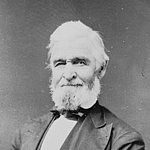Quotes about God-Discipline
If Christ has borne whatever our sins deserved, and by doing so has satisfied God’s justice to the full, then God cannot, in justice, punish us for sin, for that would require the full payment from Christ and yet demand part of it from us… God does not chastise us as a means of satisfaction for sin, but for rebuke and caution, to bring us to mourn for sin committed, and to beware of the like. It must always be remembered that, although Christ has borne the punishment of sin, and although God has forgiven the saints for their sins, yet God may correct His people in a fatherly way for their sin. Christ endured the great shower of wrath, the black and dismal hours of displeasure for sin. That which falls upon us is as a sun-shine shower, warmth with wetness, wetness with the warmth of His love, to make us fruitful and humble… That which the believer suffers for sin is not penal, arising from vindictive justice, but medicinal, arising from a fatherly love. It is His medicine, not His punishment; His chastisement, not His sentence; His correction, not His condemnation.
The author of Hebrews readily admits that discipline is painful (Heb. 10:11). But He also assures us it is profitable. It produces “a harvest of righteousness and peace.” The purpose of God’s discipline is not to punish us but to transform us. He has already meted out punishment for our sins on Jesus at Calvary: “The punishment that brought us peace was upon Him” (Isaiah 53:5). But we must be transformed more and more into the likeness of Christ. That is the purpose of discipline.
Trusting God, 1988, p. 121. Used by permission of NavPress – www.navpress.com. All rights reserved. Get this book!
This is not to say that every adversity that occurs in our lives through God’s discipline is related to some specific sin we have committed. The issue God is dealing with in our lives is not so much what we do, but what we are. All of us tend to underestimate the remaining sinfulness in our hearts. We fail to see the extent of pride, fleshly self-confidence, selfish ambitions, stubbornness, self-justification, lack of love, and distrust of God that He does see.
Trusting God, 1988, p. 150. Used by permission of NavPress – www.navpress.com. All rights reserved. Get this book!
Even when God deems it necessary to discipline us for persistent disobedience, He always does so out of love to restore us to the way of obedience (see Hebrews 12:4-11).
Copied from The Gospel for Real Life by Jerry Bridges, © 2002, p. 96. Used by permission of NavPress – www.navpress.com. All rights reserved. Get this book!
God does deal with our sins, but only in such a way as for our good. He does not deal with us as our sins deserve, which would be punishment, but as His grace provides, which is for our good.
Transforming Grace, NavPress, 1991, p. 40. Used by permission of NavPress – www.navpress.com. All rights reserved.
Discipline may be either corrective or remedial. It may be sent for the purpose of correcting some sinful attitude or action, or to remedy some lack in our character. In either case, it is administered by our heavenly Father in love, not in wrath. Jesus has already borne the wrath of God in our place, so all adversities that come to us, come because He loves us and designs to conform us to the likeness of His Son.
Transforming Grace, NavPress, 1991, p. 183. Used by permission of NavPress – www.navpress.com. All rights reserved.
God’s corrections are instructions, His lashes our lessons, His scourges our schoolmasters, His chastisements our admonitions! And to note this, the Hebrews and Greeks both do express chastening and teaching by one and the same word, because the latter is the true end of the former.
A Puritan Golden Treasury, compiled by I.D.E. Thomas, by permission of Banner of Truth, Carlisle, PA. 2000, p. 16.
Whenever God reproves us, not only in words, but in reality, and reminds us of our sins, we do not so suffer for one fault as to be free for the future, but that until we from the heart repent, He ever sounds in our ears these words, Still God will contend with you: and a real contention is meant.
The goal of God’s discipline is to correct, or to set right, or to improve, not to make someone suffer as an act of vengeance or retribution.
What’s Discipline Got to do with It? by Bryan Chapell taken from Holiness by Grace by Bryan Chapell, copyright 2001, Crossway Books, a division of Good News Publishers, Wheaton Illinois 60187, www.crosswaybooks.org. Page 162.
God’s discipline is always loving in its intent. The love goal of discipline makes it gracious, but this is not easy to understand if and when pain is involved.
What’s Discipline Got to do with It? by Bryan Chapell taken from Holiness by Grace by Bryan Chapell, copyright 2001, Crossway Books, a division of Good News Publishers, Wheaton Illinois 60187, www.crosswaybooks.org. Page 161.
When God says, “I will not leave you alone,” He is not only promising His continuing presence, He is promising holy confrontation when we abandon Him.
What’s Discipline Got to do with It? by Bryan Chapell taken from Holiness by Grace by Bryan Chapell, copyright 2001, Crossway Books, a division of Good News Publishers, Wheaton Illinois 60187, www.crosswaybooks.org. Page 160.
Since God’s justice has been fully satisfied, the remaining purposes of His discipline are to help those dear to Him to know more of the riches of His grace, and to grow more like Him. Divine discipline is intended to benefit the wayward rather than to exact retribution for wrong.
What’s Discipline Got to do with It? by Bryan Chapell taken from Holiness by Grace by Bryan Chapell, copyright 2001, Crossway Books, a division of Good News Publishers, Wheaton Illinois 60187, www.crosswaybooks.org. Page 164.
Divine discipline is God’s merciful expression of His love for children who deserve His wrath but will never receive it.
The Power of Mercy by Bryan Chapell taken from Holiness by Grace by Bryan Chapell, copyright 2001, Crossway Books, a division of Good News Publishers, Wheaton Illinois 60187, www.crosswaybooks.org. Page 194.
God will administer loving discipline for wrongdoing in order to keep His children from experiencing even more extreme consequences of sin. This discipline can be quite rigorous, because while the damage of sin unchecked can be so devastating, our wayward impulses can be so strong. There is an appropriate dread of divine discipline that motivates us to avoid sin. Still, in order for discipline to operate properly in the Christian life, we must remember that God’s discipline for his children is never punitive or damaging.
The Power of Mercy by Bryan Chapell taken from Holiness by Grace by Bryan Chapell, copyright 2001, Crossway Books, a division of Good News Publishers, Wheaton Illinois 60187, www.crosswaybooks.org. Page 194.
We often learn more of God under the rod that strikes us than under the staff that comforts us.
“Is discipline the same as punishment?” a young woman asked me. She was troubled by the idea of God wanting to “get even.” I gave her 1 Corinthians 11:32 (NEB) “When…we do fall under the Lord’s judgment, He is disciplining us, to save us from being condemned with the rest of the world.” God’s “punishment” of His children is never retribution, but rather correction. We know that we are indeed His beloved sons, sharing in the discipline that all sons share – for a high purpose, namely that we may some day share in His holiness, “attain life.”
Discipline – The Glad Surrender, Revell, 1982, p. 153. Get this book!
The chastisements of Christ are precious to those who believe. The believer’s love to Jesus Christ, not only continues under the rod of correction – but is quickened and increased by it! Thus it is distinguished from that pretended love, which exists only in times of prosperity. The afflicted Christian is enabled to consider – that whom the Lord loves – He chastens, and scourges every son whom He receives; and that He only afflicts us for our profit – to make us partakers of His holiness.
We may think that…severity (as God leads His children) is inconsistent with what we know of God’s gentleness and compassion. But that is because we do not appreciate how seriously God loves us, and how determined He is that we should have His best, even if it means pain.
The godly do suffer and complain about it at times. But the Bible teaches plainly that their suffering, even after their conversion and reconciliation to God, is not punishment any longer, but chastening. It is not the punishment of a God who is angry with them, but the chastening of a God who is reconciled to them. Whom God loves, the Scriptures says, He chastens. He makes all things, including pain, “work together for good for them that love God, and are called according to His purpose.” That should be the consolation and strength of the saints… That affliction is actually a blessing in disguise. At other times, the pain hurts so much that they cannot, through the tears, see the disguise. Momentarily they lament the heavy hand of God upon them, but when they are thinking in their most saintly character, they praise God. His rod and staff comfort them.
It is self-evident that if punishment is not painful, it is not punishment. The only point of punishment is the administration of pain. The person who does sin…deserves to be punished; he deserves to suffer. One hopes that suffering will cure him of his sinfulness. At least, it will correct his behavior. He will be “scared straight” in behavior, if not softened in spirit.
When pain is present it is difficult to bear; but when a Christian, even in anguish, realizes that this is the heavy hand of a loving God upon him, he blesses God in his sufferings and for His suffering, which he knows is for his own good and for his everlasting blessedness.
God does not afflict His children willingly. He takes no delight in seeing our tears – or hearing our groans. But He does take delight in doing us good, making us holy, conforming us to His own image, and fitting us to dwell in His own presence.
Many people fail to make a clear distinction between punishment and discipline, and there is a very significant difference between these two concepts. Punishment is designed to execute retribution for a wrong done. Discipline, on the other hand, is to encourage the restoration of the one involved in the wrongdoing. Punishment is designed primarily to avenge a wrong and assert justice. Discipline is designed primarily as a corrective for the one who has failed to live according to the standards of the church and/or society.
God has no pleasure in afflicting us, but He will not keep back even the most painful chastisement if He can but thereby guide His beloved child to come home and abide in the beloved Son.
If we only knew how bad we are, we would welcome chastening because this is God’s way of getting rid of sin and its habits. But chastening is resented because we cannot believe that we have done anything worthy of it (John Sanderson).
Love precedes discipline.
There is a threefold distinction between [divine punishment and divine chastisement]. First, the character in which God acts. In the former God acts as Judge, in the latter as Father. The second distinction…lies in the recipients of each. The objects of the former are His enemies. The subjects of the latter are His children. A third distinction is seen in the design of each: the one is retributive, the other remedial. The one flows from His anger, the other from His love.
When the believer is smarting under the rod let him not say, God is now punishing me for my sins. That can never be. That is most dishonoring to the blood of Christ. God is correcting thee in love, not smiting in wrath. Nor should the Christian regard the chastening of the Lord as a sort of necessary evil to which he must bow as submissively as possible. No, it proceeds from God’s goodness and faithfulness, and is one of the greatest blessings for which we have to thank Him. Chastisement evidences our Divine son-ship: the father of a family does not concern himself with those on the outside: but those within he guides and disciplines to make them conform to his will. Chastisement is designed for our good, to promote our highest interests. Look beyond the rod to the All-wise hand that wields it!
Oftentimes God’s chastenings instead of being retributive are corrective. They are sent to empty us of self-sufficiency and self-righteousness: they are given to discover to us hidden transgressions, and to teach us the plague of our own hearts. Or again, chastisements are sent to strengthen our faith, to raise us to higher levels of experience, to bring us into a condition of usefulness. Still again, Divine chastisement is sent as a preventative, to keep under pride, to save us from being unduly elated over success in God’s service.
Let us not conclude when we see a fellow-Christian under the rod of God that he is necessarily being taken to task for his sins.
Martin Luther said that God wields two rods. One is the rod of Fatherly kindness – the rod of love and mercy to correct His children. The other is the club of anger flowing from justice and wrath toward His enemies. We know for the Christian, Christ took the rod of anger on our behalf. Justice was accomplished we He took our sin upon Himself. God’s wrath was fully exhausted upon Him. We have been forgiven and adopted into God’s family. Yet in that family we do receive the rod of correction from a Father that seeks to correct us when we sin. It is because He knows better than us the consequences of sin. It is because He loves us! Discipline is always a sign of love.
“Oh Lord, don’t give me what I deserve, but give me what I need. Don’t remove the discipline, but discipline me in kindness and grace. Let not the rod be a sword, but let it be the stern hand of a loving Father that wants to turn me from my rebellious ways and make me more like Yourself. I bring none of my goodness to you, but plead on behalf of my littleness. I want the blessing of Your rebuke, but I fear the billows of Your anger. I trust You as my Father. Please correct me, change me and restore our relationship.”
As a father, I don’t discipline the kinds down the street. I only discipline my own children. I evaluate their actions and correct when they are making unbiblical choices. My discipline is not punitive or vengeful. It’s for correction and I correct them because I love them. And the proof of my fatherhood is seen in whom I discipline. The same is true for God (Hebrews 12:5–10).
It is never said, “Whom the Lord loveth He enricheth,” but it is said, “Whom the Lord loveth he chasteneth.”
God never punishes his children in the sense of avenging justice. He chastens as a father does his child, but he never punishes his redeemed as a judge does a criminal. It is unjust to exact punishment from redeemed souls since Christ has been punished in their place. How shall the Lord punish twice for one offense?
No matter how dear you are to God, if pride is harbored in your spirit, He will whip it out of you. They that go up in their own estimation must come down again by His discipline.
God’s people can never by any possibility be punished for their sins. God has punished them already in the person of Christ, their substitute. But yet, while the Christian cannot be condemned, he can be chastised. Punishment is laid on a man in anger; God strikes him in wrath. But when he afflicts His child, chastisement is applied in love. The rod has been baptized in deep affection before it is laid on the believer’s back.
It hurts when God has to PRY things out of our hand!
He remembers our frame and knows that we are dust. He may sometimes chasten us, it is true, but even this He does with a smile, the proud, tender smile of a Father who is bursting with pleasure over an imperfect but promising son who is coming every day to look more and more like the One whose child he is.
It is in mercy and in measure that God chastiseth His children.
A Puritan Golden Treasury, compiled by I.D.E. Thomas, by permission of Banner of Truth, Carlisle, PA. 2000, p. 41.
The godly have some good in them, therefore the devil afflicts them; and some evil in them, therefore God afflicts them.
We may force our Lord to punish us, but we will never have to force Him to love us. That’s His nature.
[God] is not at a loss when He moves to bring us back to Himself. He can woo or whip. He can draw or drive. He can work rapidly or slowly, as He pleases. In other words, He is free to be God! And in His own way, at His own pace, He brings us back.
Christian: Take Heart! By Permission of the Banner of Truth Trust, Carlisle, PA. 1987, p. 61.
Look upon your chastening as God’s chariots sent to carry your soul into the high places of spiritual achievement.
We may feel God’s hand as a Father upon us when He strikes us as well as when He strokes us.
A Puritan Golden Treasury, compiled by I.D.E. Thomas, by permission of Banner of Truth, Carlisle, PA. 2000, p. 41.
























